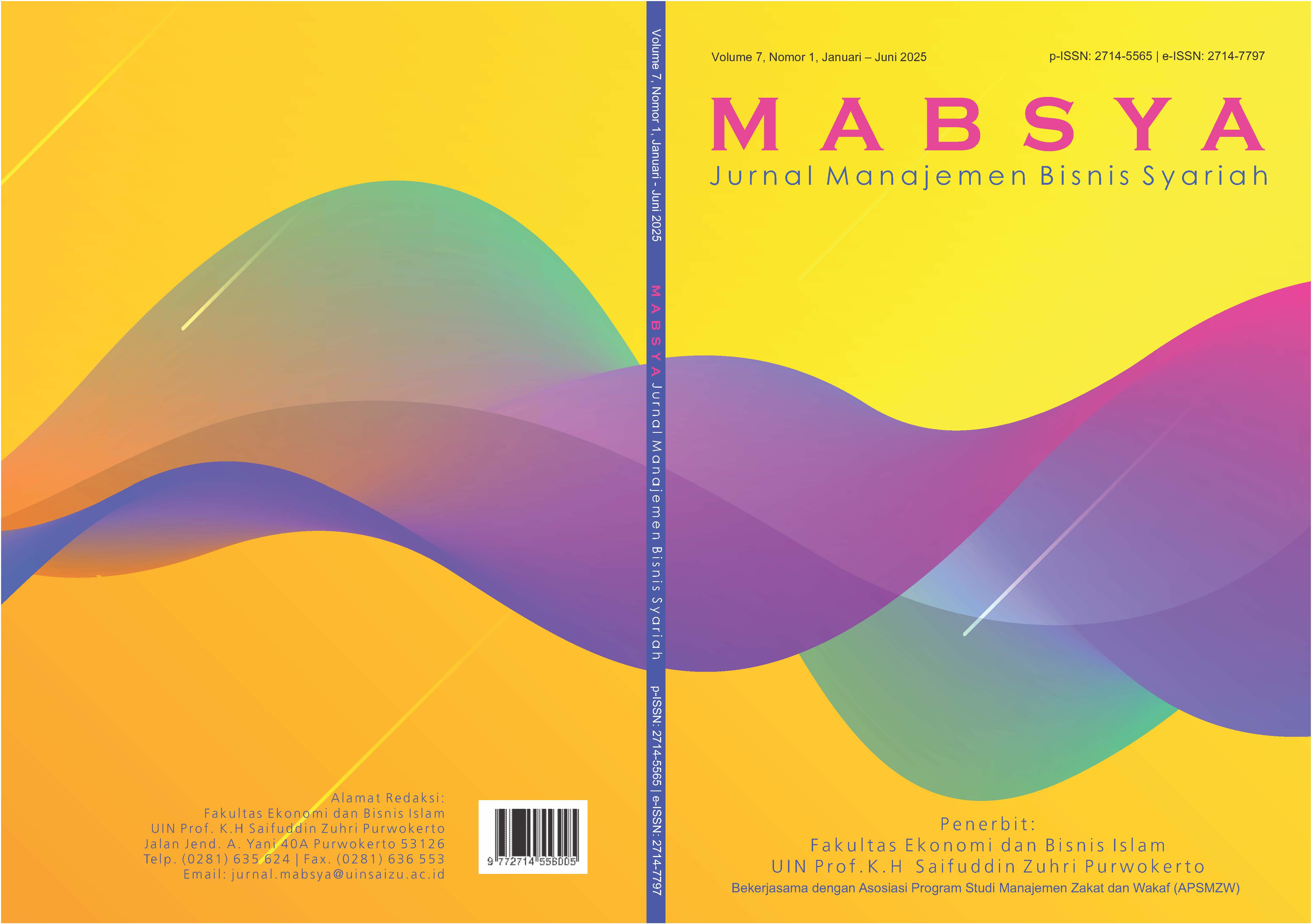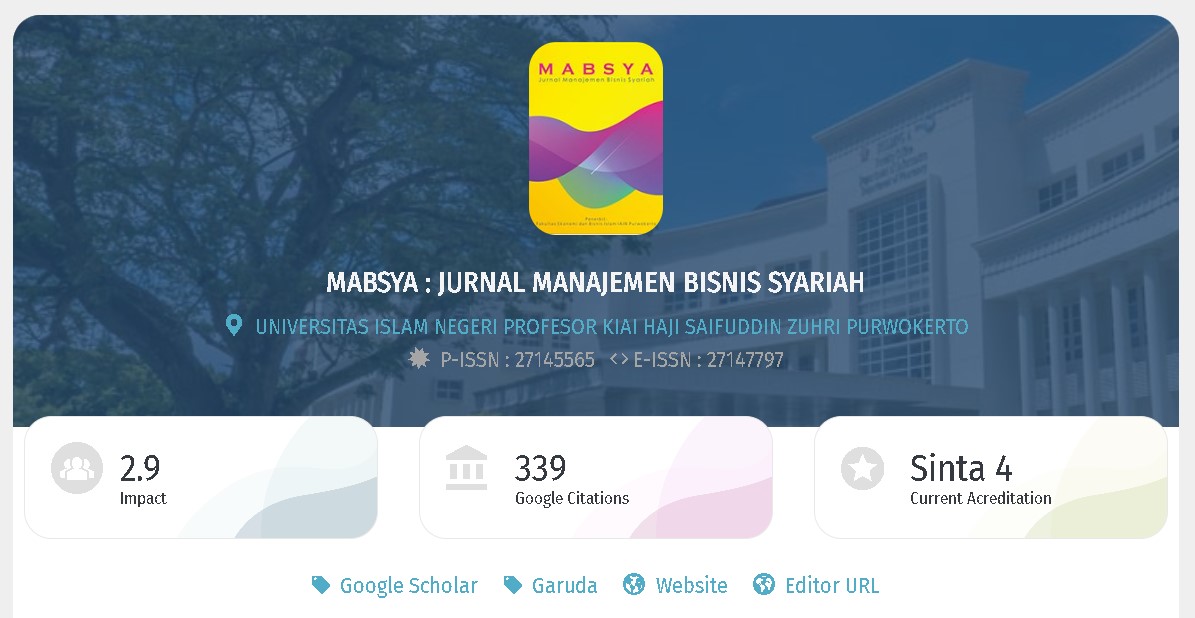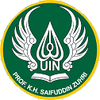Sharia Financial Institutions, Synergy, and Their Role in Empowering MSMEs in Badung Regency
DOI:
https://doi.org/10.24090/mabsya.v7i1.13554Keywords:
Empowerment, Goverment, MSMEs, Sharia Financial Institution, SynergyAbstract
MSMEs have a very large contribution to the Indonesian economy. The potential for MSMEs development is no exception in Badung Regency as the region with the largest local and international tourist destination in Indonesia. MSMEs are the key to accelerating Indonesia's sharia economy. Synergy and collaboration between various parties are needed to achieve the government's target of making Indonesia the center of the world's halal industry. This research was conducted to determine the role of Sharia Financial Institutions and their synergy efforts with related parties in empowering MSMEs. The research was conducted using a qualitative method to explore in-depth information from various parties using the focus group discussion method. This research is the first research to qualitatively analyze the role and synergy of Sharia Financial Institutions in the development of MSMEs in Badung Regency. The research results show that the role and synergy of sharia financial institutions are not yet optimal, there are various obstacles faced and more massive outreach, collaboration, and synergy efforts with various parties are needed to increase the role of sharia financial institutions in empowering MSMEs. This study concludes that increasing cooperation between Sharia Financial Institutions, the government, and MSMEs is very important, especially in the form of more massive socialization, more in-depth training, and ongoing assistance, to expand market access.References
Alamsyah, H. (2012). Perkembangan dan prospek perbankan syariah Indonesia: Tantangan dalam menyongsong MEA 2015. Makalah disampaikan pada Ceramah Ilmiah Ikatan Ahli Ekonomi Islam (IAEI), Milad ke-18 IAEI,(13 April 2012).
Amelia, S. (2023). Pengaruh Kompensasi dan Lingkungan Kerja terhadap Kinerja Karyawan Bank Syariah Indonesia KC Tangerang Ciputat. Tadbir: Jurnal Manajemen Dakwah FDIK IAIN Padangsidimpuan, 5(1), 29-42.
Anggraini, F., Taufik, T., Muizzuddin, M., & Andriana, I. (2024). Analisis Stabilitas Perbankan Syariah dan Konvensional di Negara-Negara Kawasan MENA. Al-Kharaj: Jurnal Ekonomi, Keuangan & Bisnis Syariah, 6(2), 609-621.
Aushaf Nabil, Muhammad. (2019). Peran Lembaga Keuangan Syariah dalam Pemberdayaan UMKM di Indonesia. Ekonomi Islam.
Ayyagari, M., Demirgüç-Kunt, A., & Maksimovic, V. (2018). Financing SMEs and economic development. In Handbook of Finance and Development (pp. 503-533). Edward Elgar Publishing.
Badan Pusat Statistik. 2023. Kabupaten Badung dalam Angka 2023. Badan Pusat Statistik Kabupaten Badung.
Beck, T., & Demirguc-Kunt, A. (2006). Small and medium-size enterprises: Access to finance as a growth constraint. Journal of Banking & finance, 30(11), 2931-2943.
Hussein el dan N. Hussein Abbas. (2013). Islamic finance: Is it A Viable Option to Restrain Financial Crisis. Interdisciplinary Journal of Contemporary Research in Business,5(4), 576-588.
Kurniawan, E., Ritonga, I., & Nurhayati, N. (2023). New Culture Integration in the Merger of Bank Syariah Indonesia (BSI). International Journal of Engineering Business and Social Science, 2(01), 769-783.
Marshall, C., & Rossman, G. B. (2014). Designing qualitative research. Sage publications.
Maulidya, M., & Putra, R. (2023). The Effect of Perceptions of Profit Sharing, Islamic Financial Literacy, and E-Banking on Customer Interests in Using Bank Syariah Indonesia (BSI) Services Religiosity as a Moderating Variable. JESI (Jurnal Ekonomi Syariah Indonesia), 13(2), 225-244.
Muheramtohadi, Singgih. (2017). Peran Lembaga Keuangan Syariah dalam Pemberdayaan UMKM di Indonesia. Muqtasid: Jurnal Ekonomi dan Perbankan Syariah, 8(1), 65-77.
Nugroho, L., & Husnadi, T. C. (2017). Maslahah and strategy to establish a single state-owned Islamic bank in Indonesia. Tazkia Islamic Finance and Business Review, 10(1).
Nugroho, L., & Tamala, D. (2018). Persepsi pengusaha umkm terhadap peran bank syariah. Jurnal SIKAP (Sistem Informasi, Keuangan, Auditing Dan Perpajakan), 3(1), 49-62.
Nurdin, N. (2016). The Roles of Information Technology in Islamic Bank Knowledge Management: A study of Two Syariah Banks in Palu. Hunafa: Jurnal Studia Islamika, 13(2), 181-217.
Otoritas Jasa keuangan. 2023. Statistik Perbankan Syariah Indonesia. Otoritas Jasa Keuangan.
Prasetyo, I. B., & Rakhmawati, S. M. (2023). Analisis Perbandingan Kinerja Keuangan Perbankan Sebelum, Saat, dan Sesudah Pandemi Covid 19. Jurnal EMA, 8(1), 1-9.
Prasnowo, M. A., Aziz, M. S., Indrasari, M., Pamuji, E., & Prasetyo, D. (2023). Membangun Ekosistem Kewirausahaan Digital Syariah Bagi UMKM di Wilayah Jawa Timur dan Nusa Tenggara Barat. Prapanca: Jurnal Abdimas, 3(1), 1-9.
Rismawati, R. (2023). Analisis Komparatif Kinerja Keuangan Bank Syariah dan Bank Konvensional di Masa Covid 19.
Wahyuni, A. T., Rachmawati, R., & Baiquni, M. (2022). Spatial analysis of socio-economic vulnerability in COVID-19 handling: Strategies for the development of smart society and smart economy. Information, 13(8), 366.
Yuh Chuan Yeouh and Li Husuan Lee. (2012). Loan Market Competition and Bank Stability Reexmenition of Banking Competition and Risk Taking. Chengchi University Taiwan Journal,64(2), 58-72.
Derwing, T. M., Rossiter, M. J., & Munro, M. J. (2002). Teaching native speakers to listen to foreign-accented speech. Journal of Multilingual and Multicultural Development, 23(4), 245-259.
Grady, J. S., Her, M., Moreno, G., Perez, C., & Yelinek, J. (2019). Emotions in storybooks: A comparison of storybooks that represent ethnic and racial groups in the United States. Psychology of Popular Media Culture, 8(3), 207–217.https://doi.org/10.1037/ppm0000185
Harris, K. R., Graham, S., & Urdan T. (Eds.). (2012). APA educational psychology handbook (Vols. 1–3). American Psychological Association.
Kesharwani, P. (Ed.). (2020). Nanotechnology based approaches for tuberculosis treatment. Academic Press.
Sapolsky, R. M. (2017). Behave: The biology of humans at our best and worst. Penguin Books.
Thomas, H. K. (2004). Training strategies for improving listeners' comprehension of foreign-accented speech (Doctoral dissertation). University of Colorado, Boulder.
Downloads
Published
How to Cite
Issue
Section
License
Copyright (c) 2025 Indah Setia Utami, Berlina Hidayati, Rini Subekti, Elisabeth Ria Viana Praningtyas

This work is licensed under a Creative Commons Attribution 4.0 International License.
Authors who publish with this journal agree to the following terms: Authors retain copyright and grant the journal right of first publication with the work simultaneously licensed under a Creative Commons Attribution 4.0 International License that allows others to share the work with an acknowledgment of the work's authorship and initial publication in this journal.

















